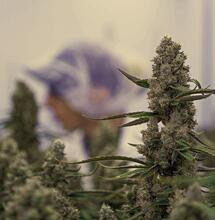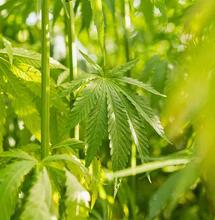The "Shroom Boom"

There is still much to be made of and capitalized on in the legal cannabis industry. However, the success that it has seen so far has brought attention to another potential market; psychedelic drugs such as mushrooms, psilocybin and LSD. Yes, the "shroom boom" is starting to make waves.
Whilst the psychedelic drug market is still in its infancy, projections estimate that it could be worth more than $10 billion by as early as 2027.
During the COVID-19 public health crisis, the CDC (Center for Disease Control) reported that the amount of Americans reporting issues with depression, anxiety and suicidal thoughts had almost doubled from the previous year. The decline of mental health and the acceptance of legal recreational and medicinal cannabis has kicked open the door to psychedelics research.
Some companies established within the cannabis industry see a move into psychedelics as a "natural extension" to their medical and scientific expertise. After all, many psychedelics are plant derivatives, which they are already familiar with working with.
Until the end of the Sixties, LSD and its potential therapeutic effects were studied across the USA and Europe. In 1970 however, funding of studies into psychedelics was stopped when the "Controlled Substances Act" was introduced in the USA. The act attempted to categorize regulated drugs based on their potential for abuse and perceived lack of medicinal benefits. Following this, getting approval from the DEA to obtain any psychedelic substances for trials or tests was near on impossible. As a result, all research into the therapeutic benefits of psychedelics, including LSD, ended.
The legalization of cannabis has helped re-ignite research into psychedelics once again, along with the desire to find new treatments to help those suffering from mental health problems. This said, psychedelics are still far from becoming anywhere near as mainstream as cannabis. While a small handful of cities and the State of Oregon have decriminalized psychedelic mushrooms, there is still a long way to go.
The goal with psychedelics, unlike cannabis, is not legalized recreational use but, instead, supervised medical use. Big Biotech aims to study the safety and efficiency of psychedelics whilst training a new generation of psychiatrists to use these drugs to treat patients.
Many believe that a new route is needed as traditional medicines merely mask issues like depression, addiction and anxiety rather than treat them. Current prescription drugs can also be highly addictive. They may make you feel better in the short term. Still, it's only a temporary relief that isn't dealing with the underlying problem.
Unlike the cannabis industry, biotech firms are only looking for FDA approval to allow psychedelics as pharmaceutical drugs. If this was to happen, it is assumed that biotech firms would only seek to have the medicines used under professional medical supervision. However, it can take many years to complete clinical trials. And even then, it is not a certainty that such drugs will gain FDA approval.
There is no doubt that psychedelics will come up against the same regulatory issues that cannabis has faced in recent years, if not more so. However, imagine what realizing the full potential of LSD and psychedelic mushrooms could mean for medicine as we know it!




